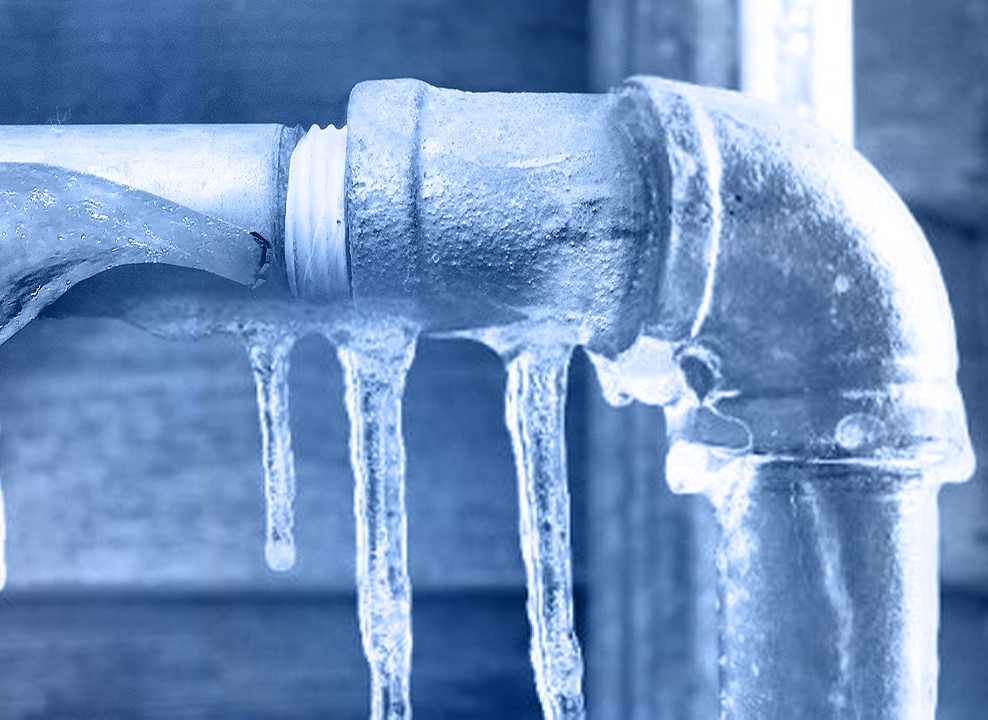How to Defend Your Pipes from Freezing: Professional Tips
How to Defend Your Pipes from Freezing: Professional Tips
Blog Article
Right here down the page you can find a bunch of professional content regarding Winter Plumbing Precautions: Preventing Frozen Pipes.

Winter can ruin your pipes, especially by freezing pipes. Here's just how to stop it from occurring and what to do if it does.
Introduction
As temperatures decline, the danger of frozen pipes increases, possibly leading to pricey repair services and water damage. Understanding exactly how to stop frozen pipelines is important for homeowners in cool climates.
Comprehending Frozen Pipelines
What causes pipelines to ice up?
Pipelines freeze when revealed to temperatures below 32 ° F (0 ° C) for prolonged durations. As water inside the pipes ices up, it increases, putting pressure on the pipeline wall surfaces and potentially triggering them to break.
Risks and damages
Frozen pipelines can bring about supply of water disturbances, home damages, and costly fixings. Ruptured pipelines can flooding homes and create extensive architectural damages.
Indicators of Frozen Piping
Recognizing icy pipelines early can avoid them from rupturing.
How to identify icy pipelines
Try to find reduced water flow from taps, uncommon odors or sounds from pipelines, and noticeable frost on exposed pipes.
Avoidance Tips
Shielding prone pipes
Cover pipelines in insulation sleeves or use heat tape to shield them from freezing temperatures. Focus on pipelines in unheated or outside areas of the home.
Home heating methods
Maintain indoor rooms effectively heated, particularly areas with pipes. Open closet doors to allow cozy air to circulate around pipes under sinks.
Securing Outdoor Pipes
Garden pipes and exterior faucets
Disconnect and drain garden pipes prior to winter. Install frost-proof spigots or cover outdoor faucets with insulated caps.
What to Do If Your Pipes Freeze
Immediate actions to take
If you think frozen pipes, keep taps open to alleviate pressure as the ice thaws. Make use of a hairdryer or towels taken in warm water to thaw pipes slowly.
Long-Term Solutions
Architectural changes
Take into consideration rerouting pipes away from outside wall surfaces or unheated areas. Include additional insulation to attics, cellars, and crawl spaces.
Upgrading insulation
Invest in high-grade insulation for pipelines, attics, and wall surfaces. Proper insulation helps keep regular temperature levels and decreases the risk of icy pipelines.
Final thought
Avoiding icy pipelines requires aggressive procedures and quick feedbacks. By comprehending the causes, indicators, and preventive measures, homeowners can secure their pipes during winter.
6 Proven Ways to Prevent Frozen Pipes and Protect Your Home
Disconnect and Drain Garden Hoses
Before winter arrives, start by disconnecting your garden hoses and draining any remaining water. Close the shut-off valves that supply outdoor hose bibs and leave the outdoor faucet open to allow any residual water to drain. For extra protection, consider using faucet covers throughout the colder months. It’s also important to drain water from any sprinkler supply lines following the manufacturer’s directions.
Insulate Exposed Pipes
Insulating your pipes is an effective way to prevent freezing. Pipe insulation is readily available at home improvement stores and is relatively inexpensive. Pay close attention to pipes in unheated areas such as the attic, basement, crawl spaces, or garage. Apply foam insulation generously to create a buffer against the cold. You can also wrap your pipes in heat tape or thermostat-controlled heat cables for added warmth.
Seal Air Leaks
Inspect your home for any cracks or openings that could let in cold air. Seal any holes around the piping in interior or exterior walls, as well as the sill plates where your home rests on its foundation. Additionally, make sure to keep your garage door closed unless you’re entering or exiting. Leaving it open creates a significant air leak that can lead to frozen pipes.
Allow Warm Air Circulation
During cold snaps, it’s essential to allow warm air to circulate evenly throughout your home. Leave interior doors ajar to promote better airflow. Open kitchen and bathroom cabinets to help distribute heat consistently around the rooms. If you have small children or pets, be sure to remove any household chemicals or potentially harmful cleaners from open cabinets for safety.
Let Faucets Drip
A small trickle of water can make a big difference in preventing ice formation inside your pipes. When temperatures drop significantly, start a drip of water from all faucets served by exposed pipes. This continuous flow helps prevent the water from freezing. Additionally, running a few faucets slightly can relieve pressure inside the pipes, reducing the chances of a rupture if the water inside does freeze.
https://choateshvac.com/6-proven-ways-to-prevent-frozen-pipes-and-protect-your-home/

I am very excited about How to prepare your home plumbing for winter weather and I'm hoping you liked my article. If you enjoyed our blog entry kindly do not forget to share it. We take joy in reading our article about How To Avoid Freezing Pipes.
Get Started Report this page